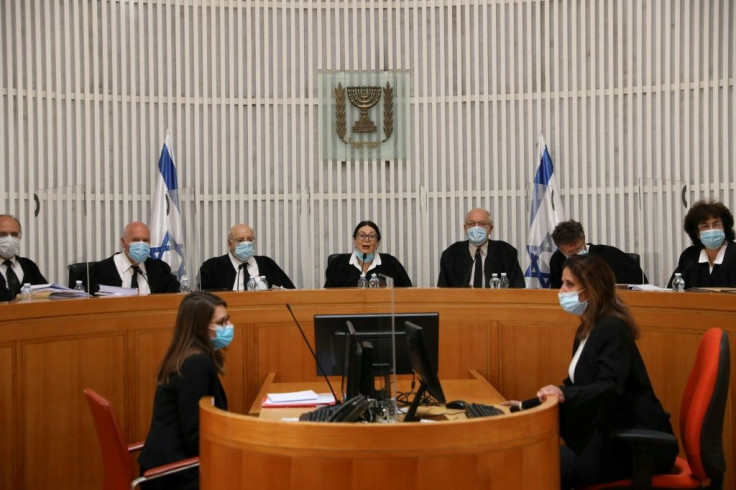Israeli Lawmakers In 'Marathon' Debate On Coalition Deal

Israel's parliament on Tuesday launched what it warned would be a "marathon debate" on a proposed coalition government deal, the legality of which has been challenged in the country's Supreme Court.
A parliament statement said the bill to pass into law the contentious accord between incumbent Prime Minister Benjamin Netanyahu and his rival-turned-partner Benny Gantz faced about 1,000 amendment requests from opponents.
The 120-member parliament, which is fiercely divided on the issue, was scheduled to debate until around midnight (2100 GMT), resuming early Wednesday.
Voting is scheduled to begin at 4 pm (1300 GMT) on Wednesday, but a parliament spokesman said that timetable could change.
Former Gantz ally Yair Lapid, head of the opposition Yesh Atid party, is among the eight petitioners to the Supreme Court seeking to block the deal, while Gantz's Blue and White party defended it in the two-day hearing which ended Monday.
If the agreement is torpedoed by the court or parliament, it is expected to send Israel into a fourth general election, after three inconclusive polls in a year.
Netanyahu warned Monday that judicial intervention would "go against the will of the people" as expressed in the most recent election in March in which his right-wing Likud party beat the centrist Blue and White by 36 seats to 33.
The panel of 11 judges is expected to rule by Thursday, the deadline for forming a government under electoral law.
At Monday's hearing, justices raised concern with several aspects of the coalition deal, but were reluctant to rule on the legality of individual provisions before they had become law.
In a written opinion to the court, Attorney General Avichai Mandelblit had advised that problematic provisions be reviewed "at the implementation stage".

Netanyahu's Likud and Blue and White responded Tuesday to two concerns raised in court.
Under the coalition deal, the government was to be defined as an "emergency" body for its first six months, tasked exclusively with combatting the coronavirus.
Following questions about the legality of that clause, the parties said they would amend the deal to say coronavirus will be the priority through the first six months, but other issues can be also handled.
They also said they would pause certain public appointments for only 100 days, instead of the originally planned six months.
During three elections in a year Gantz had based his campaign on ousting Netanyahu and what he called his corrupt regime.
Netanyahu is indicted with accepting improper gifts and illegally trading favours in exchange for positive media coverage.
He denies wrongdoing and his trial is set to start on May 24.
Speaking in Tuesday's televised debate, Lapid accused Gantz of abandoning his principles and betraying those who voted for him by agreeing to share power with his erstwhile foe.
"If, three months ago I had told you from this podium that Gantz would battle in court for Netanyahu's right to hold office with three grave charges (against him), you would have told me I had lost my mind," he said.
The three-year agreement would see Netanyahu serving as prime minister for 18 months, with Gantz as his "alternate", a new title in Israeli governance.
They will swap roles midway before likely taking voters back to the polls in 36 months.
© Copyright AFP 2024. All rights reserved.





















